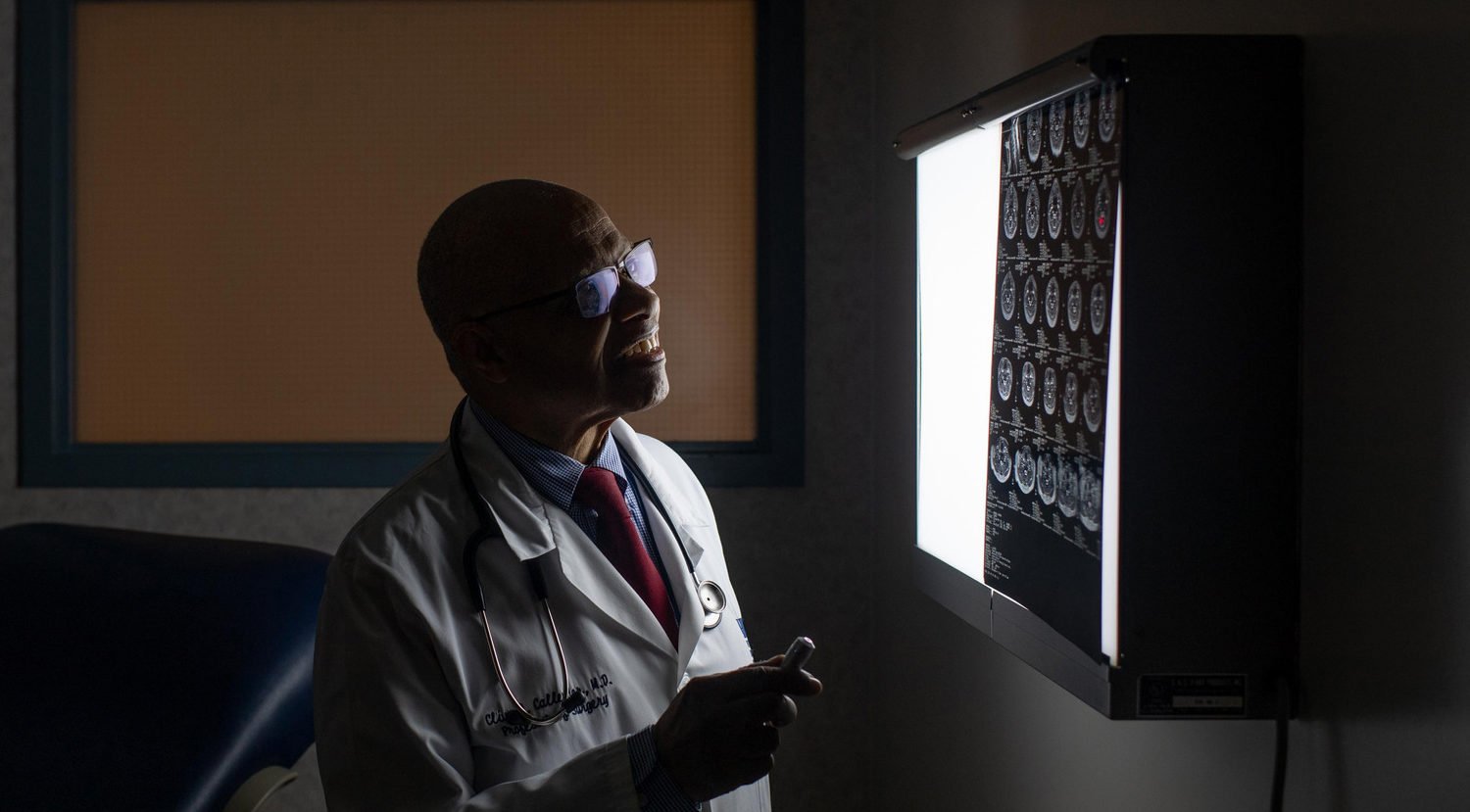Some urologists across the country have seen a rise in the number of patients interested in learning more about vasectomies since it became clear the Supreme Court intended to overturn Roe v. Wade. Doctors in the DC area we spoke to, however, say the court’s recent decision in Dobbs v. Jackson Women’s Health Organization hasn’t impacted their business much, likely because abortion rights are still safe in the Washington area. (Though many urologists book vasectomy consultations months in advance, so any consequences from Dobbs probably won’t show up in their offices for a while.)
Dr. Kambiz Tajkarimi, a urologist at Spartan Men’s Health in Leesburg, says he’s been seeing more men since the onset of Covid-19 who simply just never want to have kids. “People are saying this world is not a place to raise kids right now, with the pandemic, the stress of life, money and finances,” says Tajkarimi, who performs about 85 vasectomies a month.
Even among young men who want children, urologists say conversations around vasectomies have been changing for the past few years. Men without kids are starting to see vasectomies—which are reversible—as long-term contraception or a way to lift the burden of birth control off of their partners, rather than the finale to family planning after having kids. Unlike most forms of birth control usually taken by women, vasectomies do not involve hormones, which can cause negative side effects.
Women get their tubes tied far more often than men get vasectomies, despite how much more invasive and expensive tubal ligation is, says Dr. Paul Shin, a DC reproductive urologist at Shady Grove Fertility. Vasectomy, Shin says, is “the most effective long-term, cost-effective birth control.”
Many misconceptions and taboos persist about the procedure. Here are the most common myths urologists hear:
Myth #1: Vasectomies are like getting neutered
“I’m worried I’m going to lose my testicles” is a common thing Shin hears. Men take their dogs to get neutered and assume that’s what happens during a vasectomy. “I mean, that is an effective form of birth control, but that’s not what we do,” says Shin, who performs a few hundred vasectomies a year.
Myth #2: Vasectomies aren’t reversible after 10 years
False! Shin says that many of his clients are told by other physicians that it’s pointless to reverse their vasectomies after ten years because their sperm will no longer be viable, but men don’t stop generating sperm due to a vasectomy. “After the vasectomy, inside the testicle, the testicle is none the wiser,” Shin says. “It will continue to make sperm—the sperm just doesn’t have anywhere to go.”
Myth #3: Vasectomies hurt—a lot
Shin says men think it’s going to be the same pain as getting kicked in the nuts, but for days on end. In reality, all patients usually need is an over-the-counter pain medication. He actually sees a spike in vasectomies around sporting events, because men use the procedure as a convenient excuse to sit on the couch and watch television. “Vasectomy madness around March Madness is a thing,” Shin says. Austin Bradshaw, one of Shin’s patients, says that despite extensive research, he was still surprised how quickly vasectomies heal—the 31-year-old Fredericksburg resident assumed he’d have to keep his lower half out of water for at least a couple of weeks, but he only has to wait 48 hours before taking a dip.
Myth #4: Vasectomies have terrible side effects
Side effects from a vasectomy are rare. The most common concern is a higher risk of prostate cancer. While some studies do show a relationship between vasectomies and prostate cancer, the urologists Washingtonian spoke to say that those studies are flawed. Tajkarimi said people who get vasectomies tend to go to the doctor more often and are more responsible, so prostate cancer is simply detected more often in people who get vasectomies.
Myth #5: Getting a vasectomy means losing your manliness
Tajkarimi and Shin say some men think they’ll have a “loss of machismo” after having a vasectomy, even though there’s no medical basis for that, since testosterone levels and erectile function should remain the same after the snip.
Bradshaw, who decided to get the procedure after Politico leaked a draft of the court’s opinion in May, says he’s not worried about losing any masculinity to his vasectomy. “The more masculine choice is to take the hit yourself,” Bradshaw says. “I like my body to be my own, and I want to make this choice on my own. And I think everybody deserves that option.”













